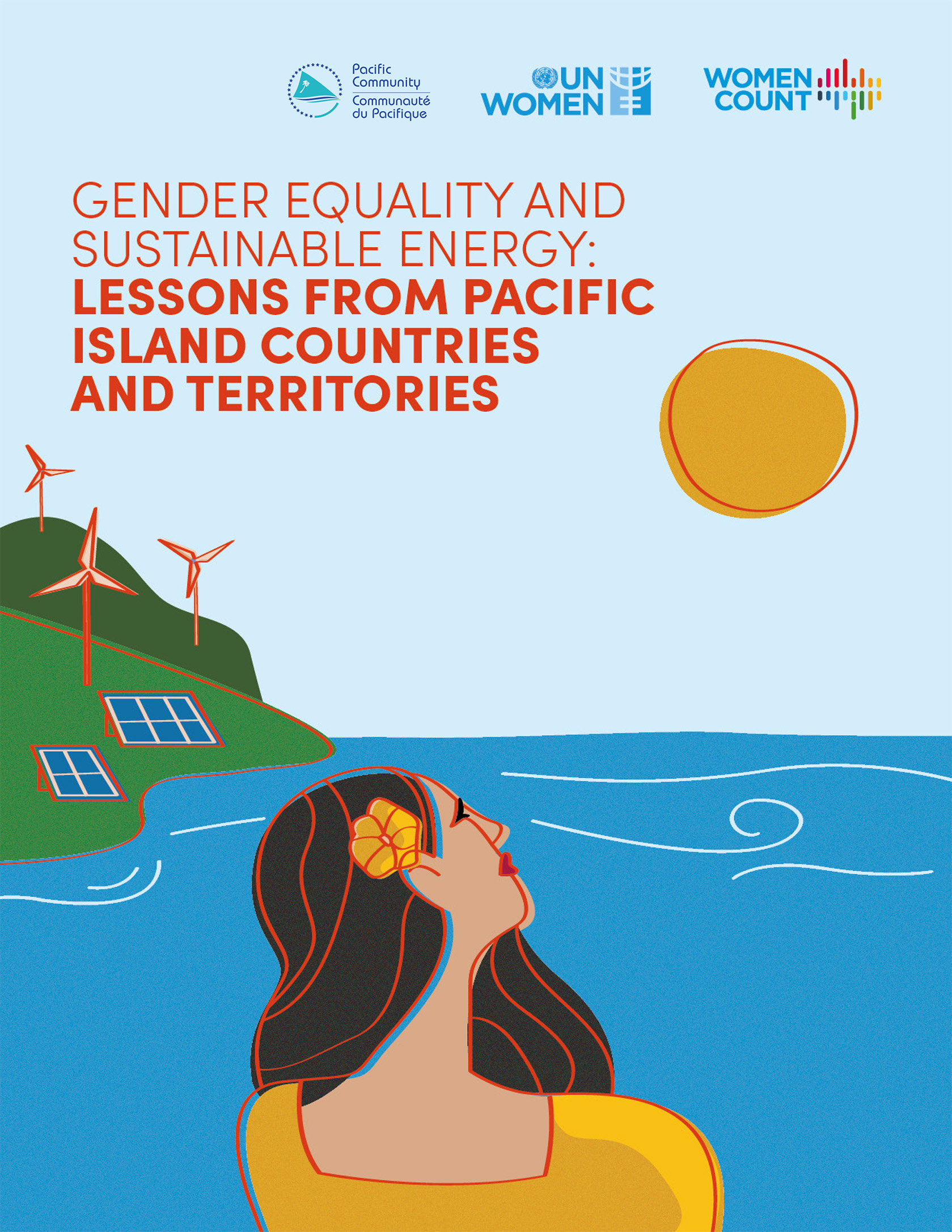
Gender equality and sustainable energy: Lessons from Pacific Island countries and territories

Access to reliable and affordable and clean energy is key to improving quality of life, particularly for women, who are typically in charge of performing domestic work chores, and the production of unpaid goods, such as fetching water and collecting fuels. Access to clean energy allows people to spend less time performing these tasks, improves their health outcomes, and is showing promising results in reducing the incidence of violence against women.
Women can be key agents of change for natural resource management, including energy-related decision making. However, in the Pacific region, their representation in energy-related ministries and decision-making positions in energy firms is low.
This report explores the barriers women face in the Pacific to entering the energy workforce, completing energy-related education, and accessing different forms of clean energy. It looks at the potential benefits that the use of clean and sustainable energy could bring across the region, and presents new gender data and analytical insights to assess challenges and opportunities for a Pacific shift to sustainable and clean energy use.